Ryan Giggs (Part 2)
Ryan Giggs (Part 2)
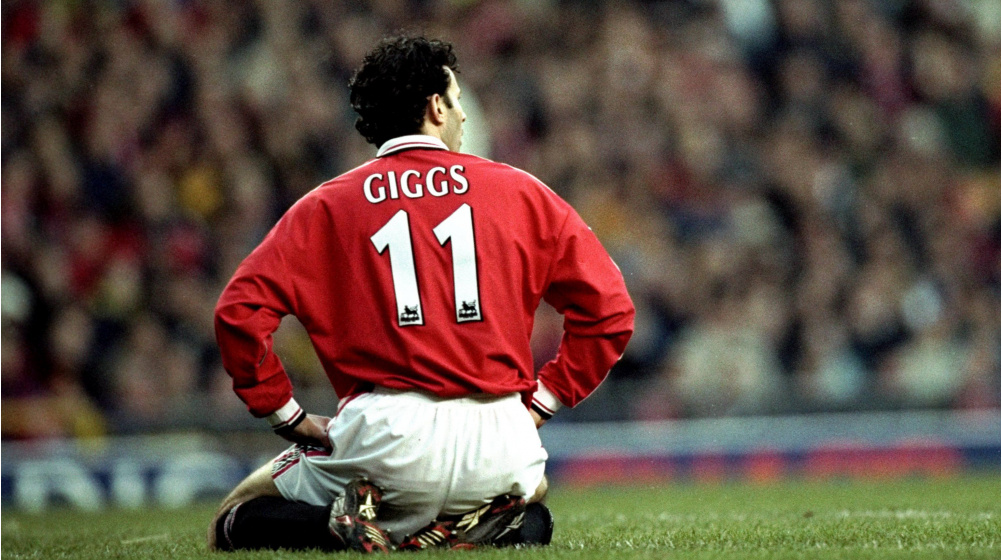
Giggs solidified his status as a crucial figure at Manchester United after becoming the club's longest-serving player following Denis Irwin's departure in May 2002. Despite still being in his 20s, Giggs continued to excel in the years following the 1999 Treble triumph. During the four seasons that followed, United clinched the Premier League title three times and reached the UEFA Champions League quarter-finals three times and the semi-finals once. In April 2001, Giggs signed a new five-year contract, highlighting his commitment to the club.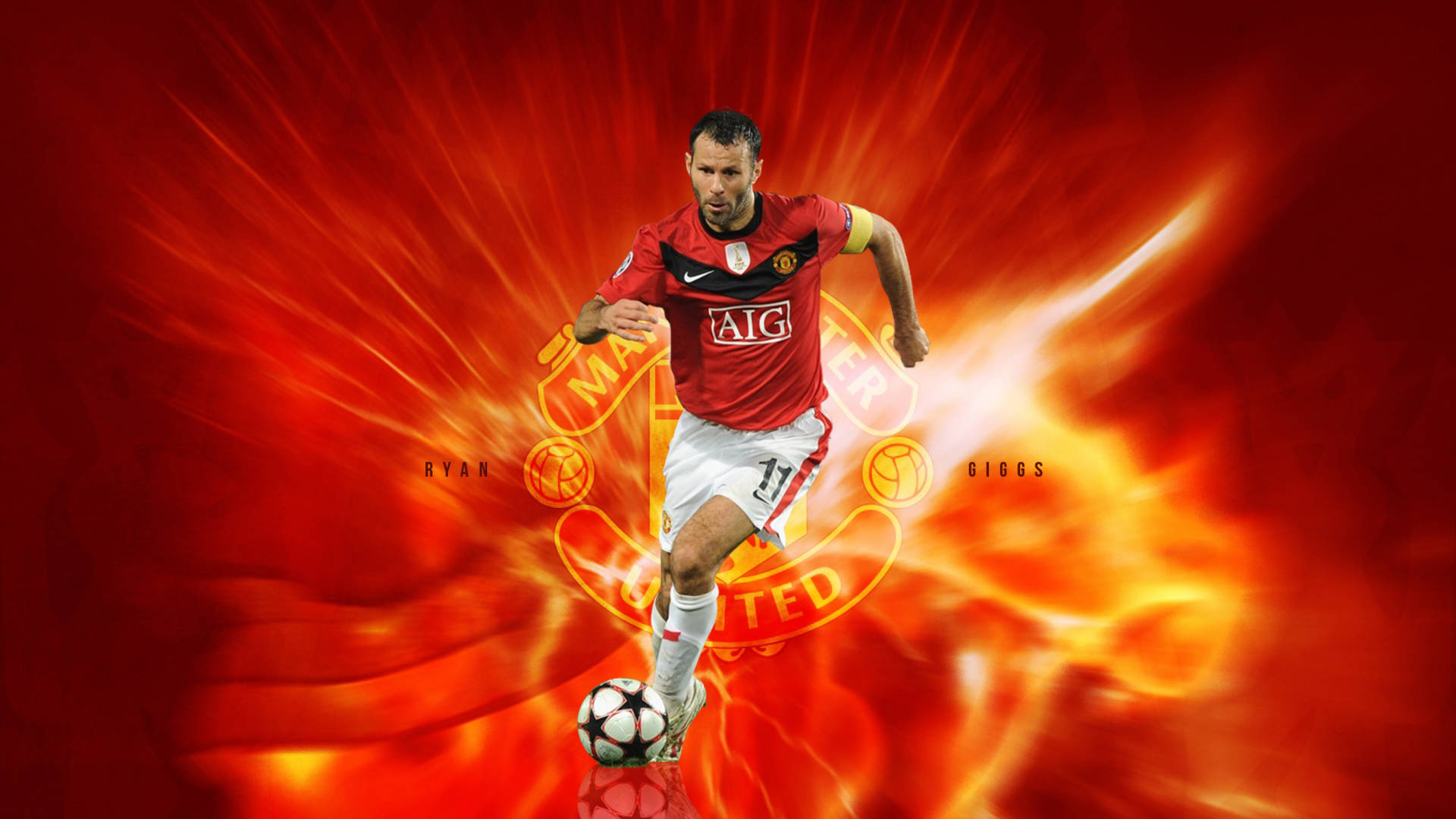
His 10-year anniversary at Old Trafford was marked with a testimonial match against Celtic at the start of the 2001–02 season. Although United lost 4–3, the game featured a memorable cameo by Eric Cantona. However, this season proved disappointing for United, as they missed out on the league title and were eliminated from the Champions League by Bayer Leverkusen in the semi-finals./origin-imgresizer.eurosport.com/2013/07/04/1043149-18975430-2560-1440.jpg)
The 2002–03 season was particularly challenging for Giggs, as he faced criticism for his poor form. Despite this, he remained determined to prove himself and dismissed suggestions that he was past his prime. Notable low points included being booed off the pitch during a League Cup match against Blackburn Rovers and an open-goal miss against Arsenal in the FA Cup, which drew harsh criticism from fans. However, Giggs bounced back with a stellar performance against Juventus, scoring two goals as a substitute.
Amid speculation of a potential move to Inter Milan, Giggs reaffirmed his commitment to Manchester United. He continued to contribute to the team's success, winning his fourth FA Cup in 2004 and reaching a milestone of 600 appearances for the club. In recognition of his remarkable career, Giggs was inducted into the English Football Hall of Fame in 2005.
By 2005, Giggs had overcome his hamstring injuries, thanks in part to practicing yoga, and his form improved significantly.
Giggs continued to be a key figure at Manchester United, signing a two-year contract extension despite the club's usual policy of offering one-year deals to players over 30. He remained largely injury-free, aside from occasional hamstring issues.During the 2006–07 season, Giggs showcased his enduring quality with several pivotal contributions. He scored his first goal of the season in a 2–1 victory over Watford, proving to be the match-winner. He followed this up with another crucial goal in a 1–0 win against Tottenham Hotspur, nodding in a header in the eighth minute. In the Champions League group stage match against Benfica, Giggs provided a goal and an assist, assisting Nemanja Vidić with a free-kick before scoring himself from a Cristiano Ronaldo cross.
In February 2007, Giggs scored three more goals to help United's title charge. He netted in a 4–0 win over Tottenham, scored the winning goal against Lille in the Champions League with a quickly taken free-kick, and equalized against Fulham before United secured a late victory. On 6 May 2007, with Chelsea only managing a draw against Arsenal, United clinched the Premier League title, marking Giggs's ninth league title – a new record surpassing Alan Hansen and Phil Neal. However, his goal was disallowed in the 2007 FA Cup Final against Chelsea, as referee Steve Bennett ruled a foul on goalkeeper Petr Čech.Giggs played a pivotal role in United's 2007 FA Community Shield victory, scoring in the first half to level the game before United won on penalties. This goal marked Giggs's first professional goal at Wembley Stadium, further cementing his legacy at the club.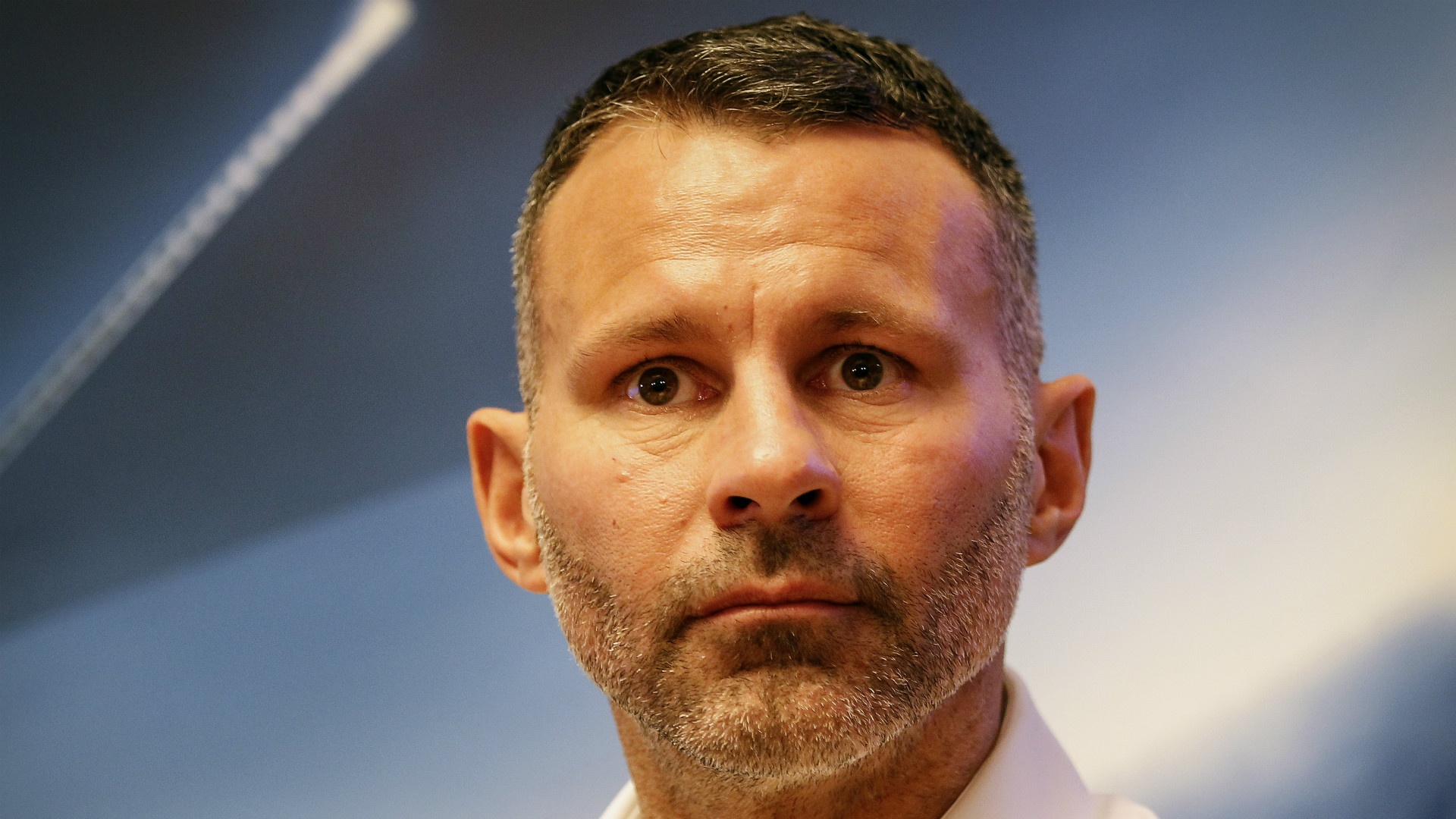
In the 2007–08 season, Alex Ferguson introduced a rotation system between Giggs and the new signings Nani and Anderson. Despite this, Giggs continued to play a significant role for Manchester United. He achieved several milestones during this season, highlighting his enduring influence at the club.On 8 December 2007, Giggs scored his 100th league goal for United in a 4–1 victory over Derby County. This landmark demonstrated his scoring prowess and longevity at the club. Additionally, on 20 February 2008, Giggs made his 100th appearance in the UEFA Champions League in a match against Lyon, further solidifying his status as a key figure in European competition.
Another significant achievement came on 11 May 2008, when Giggs equaled Sir Bobby Charlton's record of 758 appearances for United. He marked this occasion by scoring the second goal in the match, securing United's 10th Premier League title. Just ten days later, on 21 May 2008, Giggs surpassed Charlton's appearance record when he came on as a substitute in the UEFA Champions League Final against Chelsea. United ultimately won the final, with Giggs converting the winning penalty in the dramatic shootout victory.
As the 2008–09 season commenced, Ferguson deployed Giggs in central midfield, a departure from his traditional wing position. Ferguson praised Giggs's versatility and highlighted his potential to excel in a deeper role as he approached his mid-thirties. Giggs also began pursuing his coaching badges, indicating his interest in a future role within the coaching staff at United, following in the footsteps of former teammate Ole Gunnar Solskjær.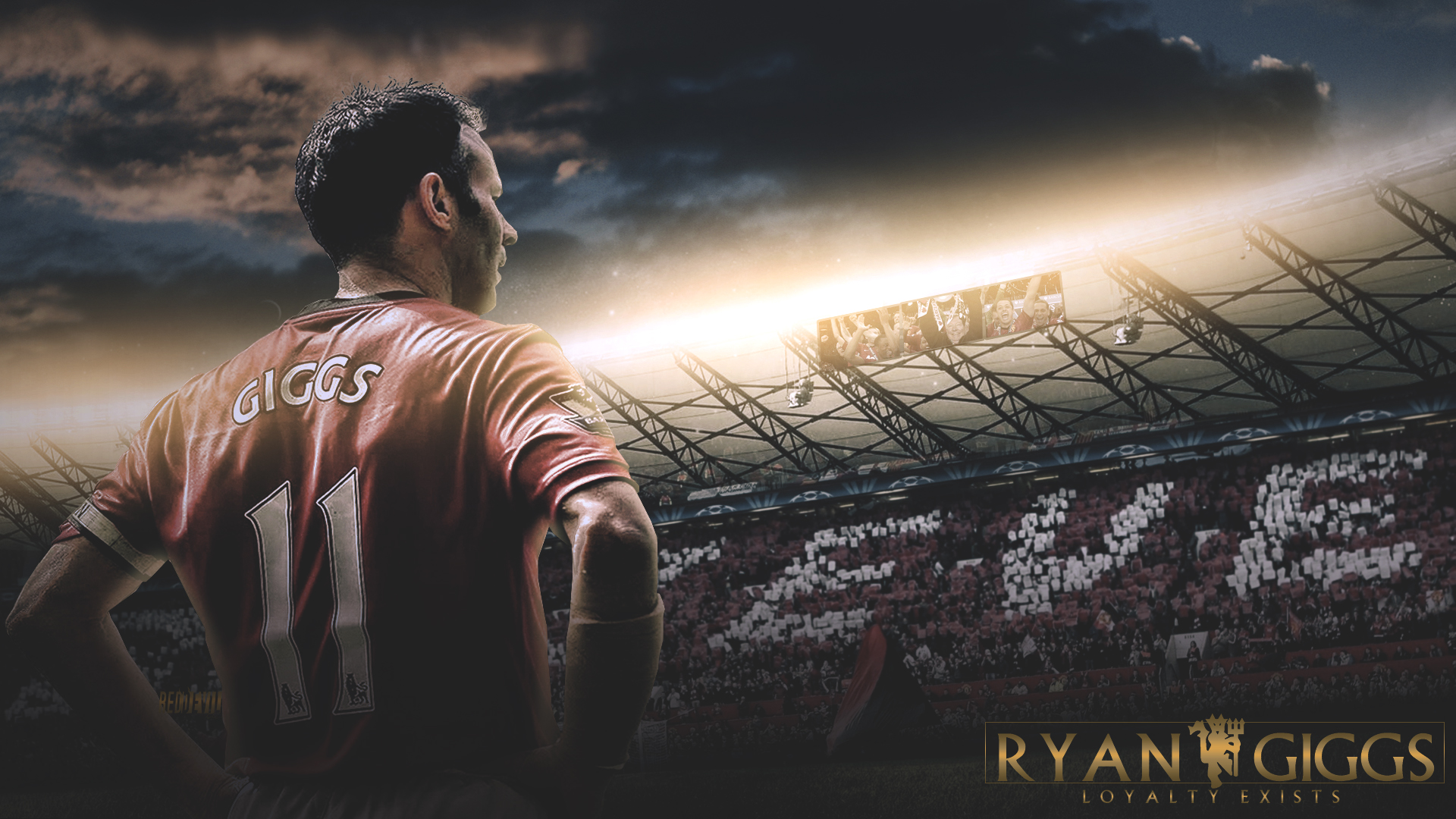
Ryan Giggs had a notable international career representing Wales, making his debut for the senior team in October 1991 at the age of 17. His debut against Germany marked him as the youngest player to appear for the Welsh senior team at the time. Giggs scored his first senior international goal for Wales in March 1993 during a World Cup qualifying match against Belgium.Despite his talent and early debut, Giggs often missed friendly matches for Wales, preferring to focus on avoiding unnecessary injuries and preserving his fitness for club commitments with Manchester United. This decision drew criticism from some quarters, but Giggs and his club manager Alex Ferguson felt it was necessary for his longevity and performance.
During his international career, Giggs faced his Manchester United teammates and friends on the opposing sides, notably in a World Cup qualifier against England in 2006. He also received praise from Brazil coach Dunga after a friendly against Brazil in 2006, where Giggs impressed despite Wales losing the match.In May 2007, Giggs announced his retirement from international football, citing a desire to concentrate on his club career with Manchester United. His final game for Wales came in June 2007, in a Euro 2008 qualifier against the Czech Republic. Giggs received the Man of the Match award in this game, capping off his international career with a commendable performance.Despite retiring from international duty, Giggs hinted at a potential return in 2010 due to injury concerns within the Welsh squad. However, he clarified that any return would only happen in an emergency situation, demonstrating his continued loyalty to Wales but also his commitment to managing his workload effectively.
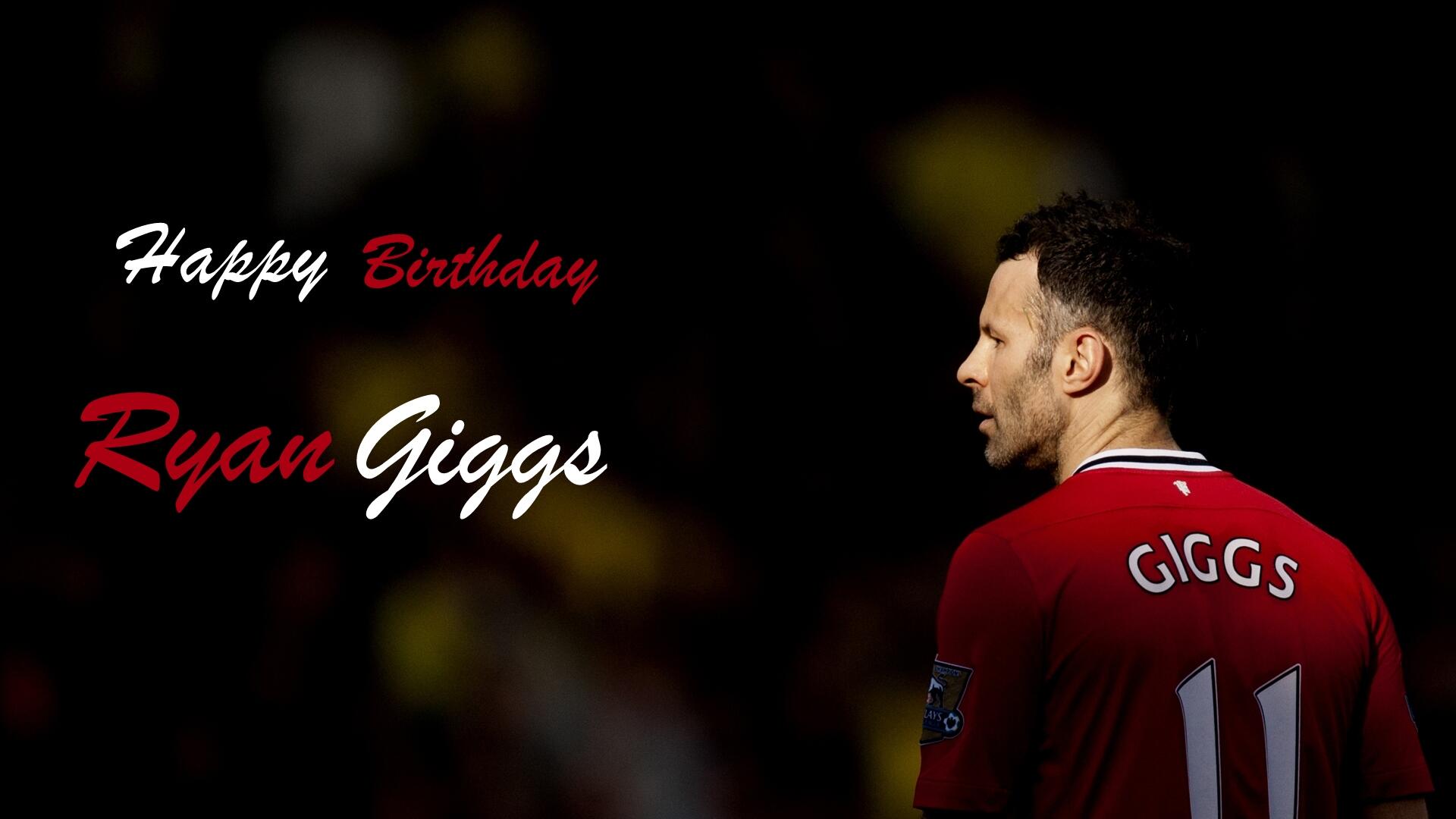
References
- Fordyce, Tom (12 November 2003). "The teenage tornado". BBC Sport. Retrieved 17 May 2009.
- ^ "Manchester United - Boro: Draw brings back memories of a rain-lashed League Cup tie". gazettelive.co.uk. 24 September 2015. Retrieved 8 February 2022.
- ^ "Steve McManaman Profile". Give Me Football. Retrieved 19 December 2010.
- ^ "Might of the midfielders". BBC News. 11 July 2001. Retrieved 19 December 2010.
- ^ "Ryan Giggs is still smiling after surviving the bitter battles with Arsenal". Evening Standard. London. 13 December 2010. Archived from the original on 16 December 2010. Retrieved 19 December 2010.
- ^ "How football became the new rock'n'roll – Rock'n'Goal Week". FourFourTwo. 22 April 2009. Archived from the original on 11 July 2011. Retrieved 19 December 2010.
- ^ Benson, Andrew (1 March 2007). "Ryan Giggs in a league of his own". BBC Sport. Retrieved 10 March 2009.
- ^ Wallace, Sam (28 July 2003). "Milestone looming for Giggs". The Daily Telegraph. London. Archived from the original on 11 January 2022. Retrieved 10 March 2009.
- a b "Football Hall of Fame – Ryan Giggs". nationalfootballmuseum.com. Archived from the original on 4 August 2008. Retrieved 10 March 2009.
- ^ Tongue, Steve (13 May 2007). "Giggs: 'This can be the best United ever'". The Independent. London. Retrieved 13 September 2008.[dead link]
- ^ "No more second chances". BBC News. 15 April 1999. Retrieved 8 April 2014.
- a b c White, Tom (23 January 2013). "Ryan Giggs: The Most Important United Player of All Time?". Bleacher Report. Retrieved 7 April 2020.
- ^ "Giggs magic sinks Gunners". BBC Sport. 14 April 1999. Retrieved 7 August 2014.
- ^ "Man Utd crowned world champions". BBC Sport. 30 November 1999. Retrieved 16 May 2011.

























